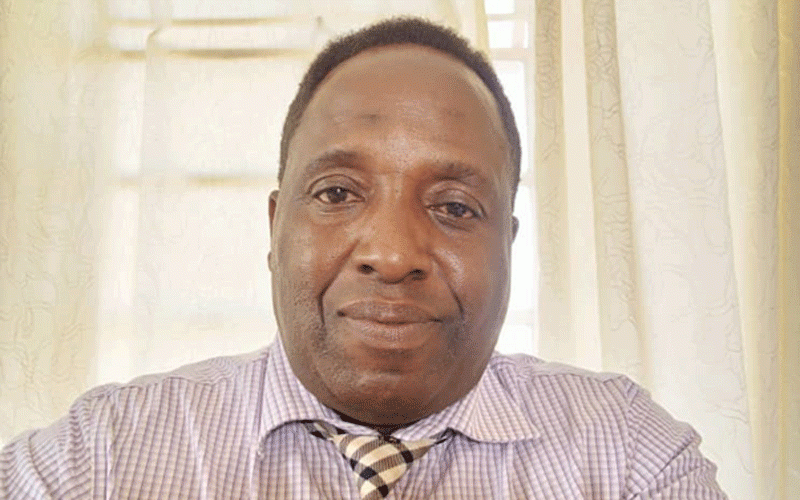

BY SIBONGINKOSI MAPHOSA
Zimbabwean women on Friday came out guns blazing following the release of Jah Prayzah’s track titled Fambai Nebhora, a dedication to the senior national soccer team, which they feel is “offensive and irresponsible” because it is “degrading and sexist” towards women.
Jah Prayzah on Friday released the single a few hours before the Warriors’ Africa Cup of Nations opening match against Egypt.
However, part of the lyrics of the five and a half minute-long song did not go down well with a section of women, who feel it should be banned for objectifying them.
Women and child right activist Nyari Mashayamombe said in as much as she appreciates the musician’s timing of the release of the song and his contribution to local music in general, she believed the Gochi-Gochi singer missed the point.
“I was baffled yesterday [Friday] when I listened to Jah Prayzah’s song for the Warriors titled Fambai Nebhora. In the song Jah Prayzah says; ‘tovanzvenga sevarandakadzi [we dribble them like women slaves], and later says ‘tovapfekedza pitikoti, mapitikoti [we make them wear petticoats]’. How vile!” said Mashayamombe.
“I didn’t finish the song as I was taken aback and thought how could such a respectable artiste demean women and be so sexist like that in a national song? How could he embarrass women and seek to alienate us from the national pride, our Warriors?”
- Chamisa under fire over US$120K donation
- Mavhunga puts DeMbare into Chibuku quarterfinals
- Pension funds bet on Cabora Bassa oilfields
- Councils defy govt fire tender directive
Keep Reading
Mashayamombe said she had nothing against Jah Prayzah since she was one of his ardent fans.
“I’ve always connected with Jah Prayzah’s music for a long time; his latest song Kunerima, for example, is one song that I loved so much. Not only was I intrigued by the art in voice prowess and outstanding video, but I was impressed by the message that women too can decline an engagement ring and that not every woman is without life unless they are married,” she said.
Another child and women activist, Angela Machonesa, took to social media platform Facebook to raise her concern over Jah Prayzah’s latest offering.
“Jah Prazah, a few days ago I asked you to lead a revolution in the entertainment industry that stops denigrating women. Instead, you have a Warriors song demeaning women,” Machonesa wrote.
“Warriors are for everyone — female and male. Our young sons woke up singing along that bad vibe, and they will finish this tournament and live their lives thinking women can be easily dribbled and if you are defeated you have worn a petticoat.”
Africa Union Goodwill Ambassador on ending child marriages and founder of Rozaria Memorial Trust (RMT) Nyaradzai Gumbonzvanda said the song was derailing efforts to readdress gender imbalances.
“It’s unfortunate. As RMT, we are hosting a girls’ soccer tournament in July and girls can play soccer. However, Jah Prayzah’s song derails our efforts. He is still behind on issues to do with women in sport,” said Gumbonzvanda.
Several women also took to social media platforms criticising the Mudhara Vachauya singer for objectifying them and called on relevant authorities to ban the song on national radio.
The Zimbabwe Gender Commission yesterday issued a statement condemning the song.
“And this is how as society we perpetuate stereotypes that demean women. And we model sexist values that have made the successes of the Mighty Warriors largely invisible,” ZGC said in a statement.
“Jah Prayzah, you have a duty as one of the prominent artistes in Zimbabwe to fix not only this song, but the cultural perceptions that made you think those lyrics were good! Let’s work together to make gender equality real!”
Jah Prayzah, manager Keen Mushapaidze could not be reached for comment yesterday as his mobile phone was not reachable.
Jah Prayzah’s career has not been all rosy because of extensive negative criticism. Most of his songs, notably Mudhara Vachauya and Kutonga Kwaro, have been disparaged for alleged political connotations.
Meanwhile, students drawn from, various tertiary institutions in Bulawayo recently booed a local DJ for playing Jah Prayzah’s song Kutonga Kwaro during a public lecture conducted by Information, Media and Broadcasting Services minister Monica Mutsvangwa at the Bulawayo Polytechnic College last week.
The song is associated with the November 2017 military takeover, which assisted President Emmerson Mnangagwa to gain the presidency.
The rejection of the song, critics say, proves that it has since lost taste and colour among the people of Zimbabwe.
The DJ played the song when Mutsvangwa was invited to the podium to give a lecture, prompting the students to shout and boo the DJ showing disapproval of the song. All of a sudden some of the students broke into singing the song Lento yenzayo, Siyayizonda, meaning we hate what you are doing, prompting the DJ to stop playing the song and play another dancehall song.
As if this was not enough the students also booed the Zanu PF deputy national secretary for administration in the youth assembly, Mabutho Moyo, and the minister when they chanted their party slogan to them.
When all this was happening, Mutsvangwa was stone-faced unable to utter a word to challenge the students.
The lecture ran under the theme; The role of information and the youth in Vision 2030 and was organised by the Zanu PF-aligned Zimbabwe Congress of Students’ Unions.










